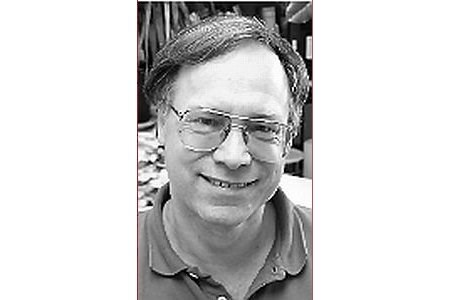New ideas about old problems
For 115 years the Royal Economic Society has been trying to figure out why some countries are rich and some are poor. The most recent issue of their journal presents two new theories that apply in Northern Ontario.
One study reports on an experiment to see if students can avoid a “poverty trap.”
A poverty trap is a vicious cycle where the decisions poor people make keep them poor. Tennessee Ernie Ford’s 1955 hit song “Sixteen Tons” was about a classic company-town version of a poverty trap:
You load sixteen tons, what do you get?
Another day older and deeper in debt.
Saint Peter, don't you call me, 'cause I can't go;
I owe my soul to the company store...
Once they fall into a poverty trap, people stay poor for generations. Some people think many First Nation communities are caught in a poverty trap. Others think that all of Northern Ontario is sliding into a poverty trap as a result of federal and provincial policies.
The authors of the study discovered voting helped small economies avoid the poverty trap. Practical democracy seemed to lead to growth. Participants in this experiment didn’t just vote on who gets to go to Toronto or Ottawa, the way we do in Northern Ontario. They voted on spending and investment plans. It was a very direct kind of democracy.
The researchers also found that the chances of success were higher if students could send messages to all other players. This kind of communication is like having access to the broadcast media. Consultations with the Ministry of Northern Development and Mines are completely different – they are designed to focus communication on the political centre.
The lesson for Northern Ontario is that more democracy might make us more economically successful. Our gradual decline in population, our failure to diversify, our low level of entrepreneurship might – just might be a result of our political system. Northerners don’t get to vote on economic policy. We don’t even really get to debate the policies very much. The last round of consultations for the so-called “Northern Growth Plan” were well intentioned, but they weren’t very impressive examples of democracy in action.
The second article in the June issue of the Economic Journal is by two Canadians, Curtis Eaton and Mukesh Eswarian. They make a link between politics and the focus on private spending. Cutting taxes so people can spend money for themselves is the main economic policy of the current federal government. The idea is that people are happier when they have a lot of money to spend.
But recent economic research shows that money doesn’t buy happiness. They are happier when they have more than their neighbours. This isn’t a new idea. One hundred and ten years ago Norwegian-American economist Thorsten Veblen said people buy expensive stuff to show off. He coined the term “conspicuous consumption.” The modern view is that, like all the other great apes, humans are pre-programmed to compete for status.
It is a very practical kind of programming in a world of scarcity. High status people are more likely to get high-quality mates, and they are more likely to get food in tough times. In a high-wealth society, however, people keep competing. The want more stuff. They want more expensive stuff. They act like money does buy happiness.
Eaton and Eswarian decided to study goods that make you happy only when you have more than other people have. They call these “Veblen Goods.” They actually show mathematically that we end up poorer when we compete by buying stuff. To buy our Veblen goods we work harder and longer. We spend less with friends and we spend less time helping make the decision that help avoid the poverty trap.
We have Northerners in poverty traps and we have Northerners who are trapped in conspicuous consumption(Not the readers of this column, of course). An amazing conclusion that comes out of the two cutting–edge studies: more participation in decision-making and more democracy would make us all better off.
Are you listening, Mr. Gravelle? A Growth Plan that works will be a growth plan that gives Northerners the power to control their own economic resources.


